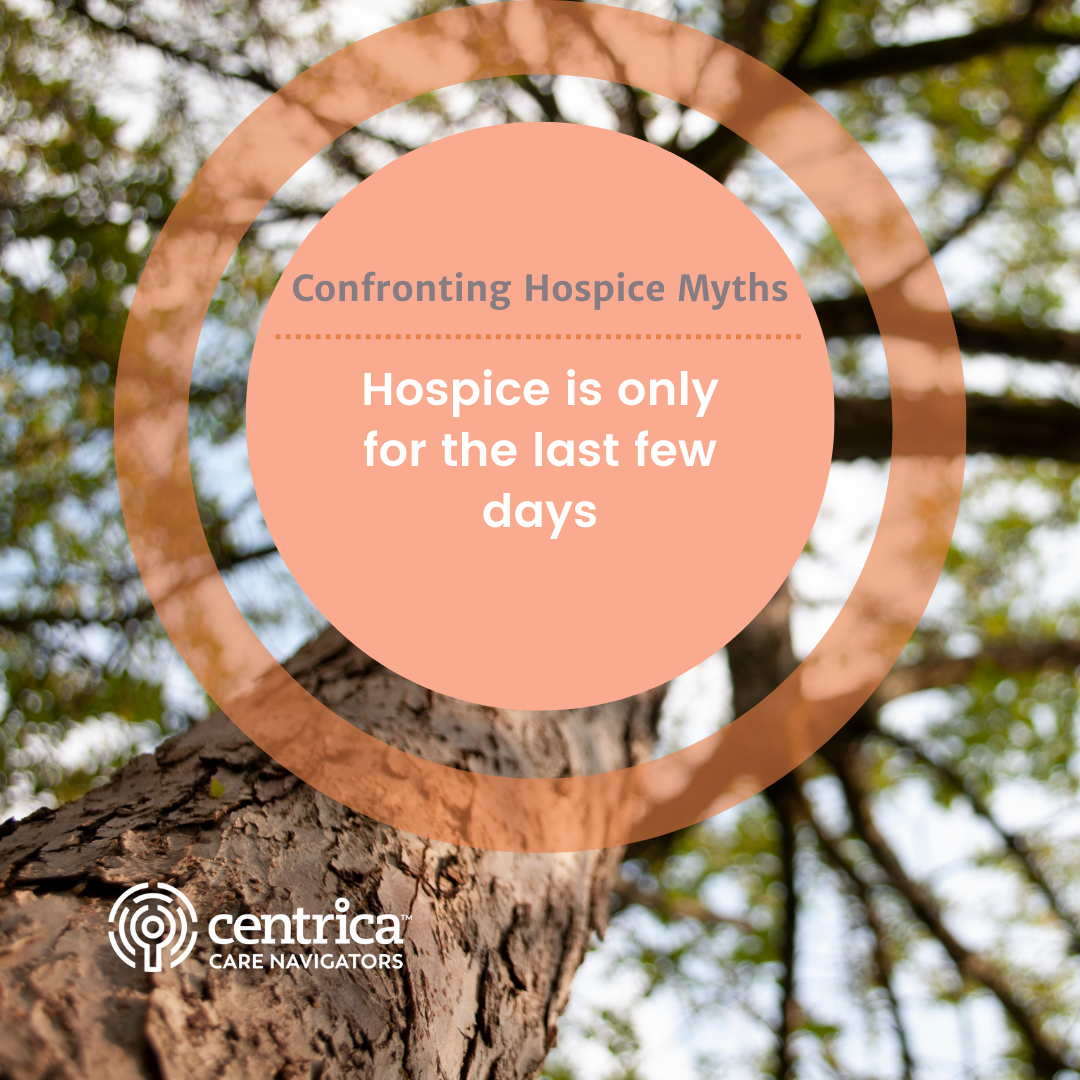Hospice is a lot of things, and one of the most important is time. Hospice care is literally described as something that’s available to a patient when they’re diagnosed with 6 months or fewer to live.
Research finds that more than 25% of patients are in hospice care for less than one week. Some are admitted soon after their diagnosis and die very early during their care, but more aren’t admitted to care until their time is almost over.
Many reasons why
There are many reasons why that happens; among them is that people don’t want to talk about getting end-of-life care, because it makes them think about death, and that makes them uncomfortable. Even doctors sometimes don’t want to discuss hospice, because talking about dying somehow means admitting they’re unable to save a life and they have failed at their calling.
So patients don’t get the care they could – and should – get until it’s almost too late. There’s no good reason for that. Hospice care isn’t just for the last few days of life. It can be for weeks, months, or even longer. Some people live longer than the expected 6 months, and continue to receive end-of-life care right up to their death.
Compassionate, focused care is our goal with every patient. A life-limiting illness brings a lot of changes with it: physical pain, symptoms that minimize what a patient can do (and maybe even prevent them from performing some of the basic tasks of living), and emotional and spiritual discomfort.
Accomplishing their goals
With all those negatives surrounding an illness, there’s no reason not to seek support as soon as possible. That’s where Centrica Care Navigators comes in.
End-of-life care is more than getting appropriate medication and regular checkups with a doctor. It’s an entire range of care, including a team who can help with things like advance directives (instructions on what to do if a patient can no longer give their opinion on their medical treatment) and support for the friends and family acting as caregivers – on top of everything else they have to do in their lives.
There’s much, much more to time with Centrica Care Navigators than medication. The goal of end-of-life care is to make a patient’s remaining days, weeks, and months comfortable and to help patients focus on what’s most important to them. We do that in a number of ways.
We schedule regular visits for special types of therapy, like pet therapy (almost everyone likes petting a dog!) and music therapy, which helps with reducing stress, enhancing communication, and more.
Social workers support patients and caregivers as a contact for discussions on changes in care. They can start or continue conversations on advance directives and funeral arrangements. They can connect a patient to pet therapy and music therapy providers. And they are there to answer questions, offer suggestions, and follow up after a patient’s death if there’s a need to reach out to our grief support team.
For those looking for other kinds of emotional and spiritual aid, Centrica Care Navigators has chaplains. They too offer support, are there to listen to patients and caregivers, and help them honor their faith in a difficult time.
Patients often enjoy interacting with volunteers, who meet patients regularly to help them with errands, give caregivers a little time to themselves, or simply provide companionship.
Doctors, nurses, and hospice aides help with the medical aspect of end-of-life care, but that’s only one part of care. Social workers, chaplains, and others offer different kinds of support – support that often makes care less stressful, especially if it’s available for an extensive period of time.
The right time
You know it often takes a few weeks, if not longer, to really get used to new people and for them to understand what makes you comfortable and what helps you accomplish your goals.
It’s the same for hospice patients; they have a great care team working with them from the very beginning of their care. But finding the right team, the most comfortable, understanding team for them, might take a little time… time the patient will have if hospice care is started months, not days, before death.
Being in hospice is also an opportunity to spend time on some of the things that really are important. Patients aren’t worried about taking chances on uncertain medical treatments, or getting to the office on time. Instead, they’re spending valuable moments with friends and family, and enjoying the kinds of things they like, from music to fresh outdoor air.
Even though it may be uncomfortable to talk about, getting hospice care sooner is better. It gets a team of professionals to work right away. It relieves the stress of having to figure out the next step in treatment. And it means more time to become comfortable with care.
About Centrica Care Navigators
Centrica Care Navigators, formerly Hospice Care of Southwest Michigan, is a private, nonprofit healthcare agency supporting individuals and caregivers coping with illness, aging, dying, and loss. Founded in 1981, Centrica Care Navigators provides care of the body, mind, and spirit for the residents of Allegan, Barry, Berrien, Branch, Calhoun, Cass, Eaton, Kalamazoo, St. Joseph, and Van Buren counties. Service is available to everyone, even those without insurance coverage. To learn more, visit CentricaCare.org.




